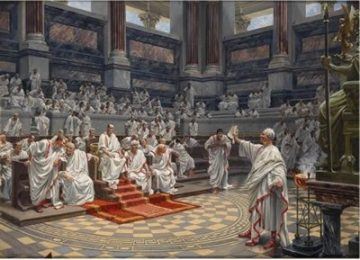Tanner Greer in The Scholar’s Stage:
 In last month’s post on Chinese attitudes towards Hong Kong I had cause to mention Dan Sperber and Hugo Mercier’s book The Enigma of Reason. At some point I probably ought to devote an entire post to a review of the book; its ideas are subtler and logic more involved than one paragraph glosses (or even most of its newspaper reviews) can give justice to. A running theme throughout the book, is that in experimental settings and in “real life” human capacity for reason is not optimized for the pursuit of abstract truth. Mercier and Sperber suggest that this is because reason did not evolve for that end. Reasoning’s role is essentially a social one—at the level of the individual it is not about deciding what to do, but about justifying what we do.
In last month’s post on Chinese attitudes towards Hong Kong I had cause to mention Dan Sperber and Hugo Mercier’s book The Enigma of Reason. At some point I probably ought to devote an entire post to a review of the book; its ideas are subtler and logic more involved than one paragraph glosses (or even most of its newspaper reviews) can give justice to. A running theme throughout the book, is that in experimental settings and in “real life” human capacity for reason is not optimized for the pursuit of abstract truth. Mercier and Sperber suggest that this is because reason did not evolve for that end. Reasoning’s role is essentially a social one—at the level of the individual it is not about deciding what to do, but about justifying what we do.
What we decide to do is for the most part entirely intuitive. As Mercier and Sperber see it, our decisions are the products of mental subsystems as opaque to us as the mysterious mechanisms that classify what we see as “beautiful” or “ugly,” determine what we are doing as “boring” or “fun,” and judge what others are doing as “admirable” or “disgusting.” Although his brain will supply the child with reasons for why he likes to watch Star Wars, the teenager with reasons for why she favors purple eye-liner, and the lover with reasons for doting upon his beloved, these thoughts are not the actual cause of the behavior in question. They are justifications. They are seized upon and articulated by the brain not to make us aware of why we make our decisions, but to make it possible for us to justify and explain our behavior to others.
Sperber and Mercier confirm this general thesis through dozens of experiments and lots of clever thinking.
More here.
